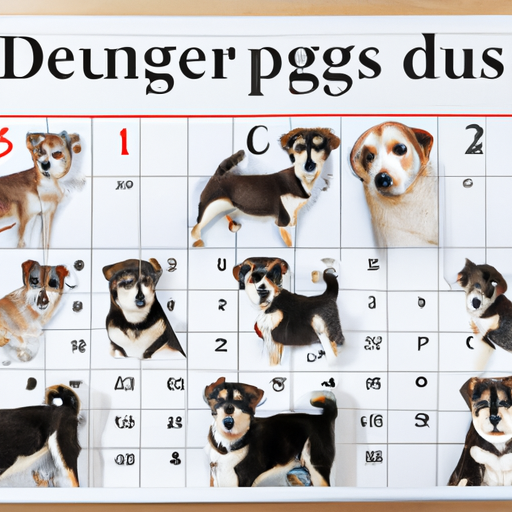“`markdown
When Are Dogs Not Puppies Anymore?
Understanding Your Puppy’s Growth
As a caregiver to your fluffy little companion, you’d naturally want to know when your puppy stops being a puppy and becomes a full-fledged dog. It’s essential to know that this transition isn’t an overnight occurrence. It’s a gradual process that depends on several factors, such as breed, size, and overall health.
- Size and Breed: Larger breeds tend to mature slower than smaller ones. A Great Dane may still be considered a puppy till it’s 2 years old, whereas a Chihuahua might reach adulthood by 9 months.
- Health: A puppy’s health status can also affect their growth. Proper nutrition and care can help your puppy transition smoothly to adulthood.
The Life Stages of a Dog
There are five primary stages in a dog’s life. Here’s a simple table to help you understand each stage better.
| Life Stage | Age Range | Characteristics |
|---|---|---|
| Puppyhood | Birth-18 Months | Rapid growth, learning basic commands and socialization |
| Adolescence | 6 Months-2 Years | Increased independence, physical changes, and potential behavioral issues |
| Adulthood | 1-6 Years | Stable behavior, fully grown, active and energetic |
| Senior | 6-10 Years | Slower activity, possible health problems, needs more rest |
| Geriatric | 10+ Years | Significant slowing down, more frequent health checks needed |
How to Care for Your Dog at Each Stage
- Puppyhood: This is when your puppy needs the most care and attention. Vaccinations, socialization, and potty training are crucial during this stage.
- Adolescence: You might find your dog becoming more rebellious during this stage. Consistent training and positive reinforcement can help manage this.
- Adulthood: Regular exercise and a balanced diet are vital to keep your dog healthy.
- Senior and Geriatric: Regular vet checks become important to detect any potential health problems early.
Spotting the Transition
You might be wondering how to tell when your puppy is transitioning into adulthood. The most obvious signs include:
- Slowing down of growth
- Changes in behavior
- Reduced chewing tendencies
FAQs
- Q: What age is a puppy considered a dog?
A: This varies with breed and size. Generally, a dog is considered an adult between 1-2 years. - Q: How can I help my puppy transition to adulthood?
A: Regular vet visits, a balanced diet, and consistent training can help. - Q: Can my dog still behave like a puppy in adulthood?
A: Yes, some dogs retain their puppy-like behavior in adulthood.
“`



